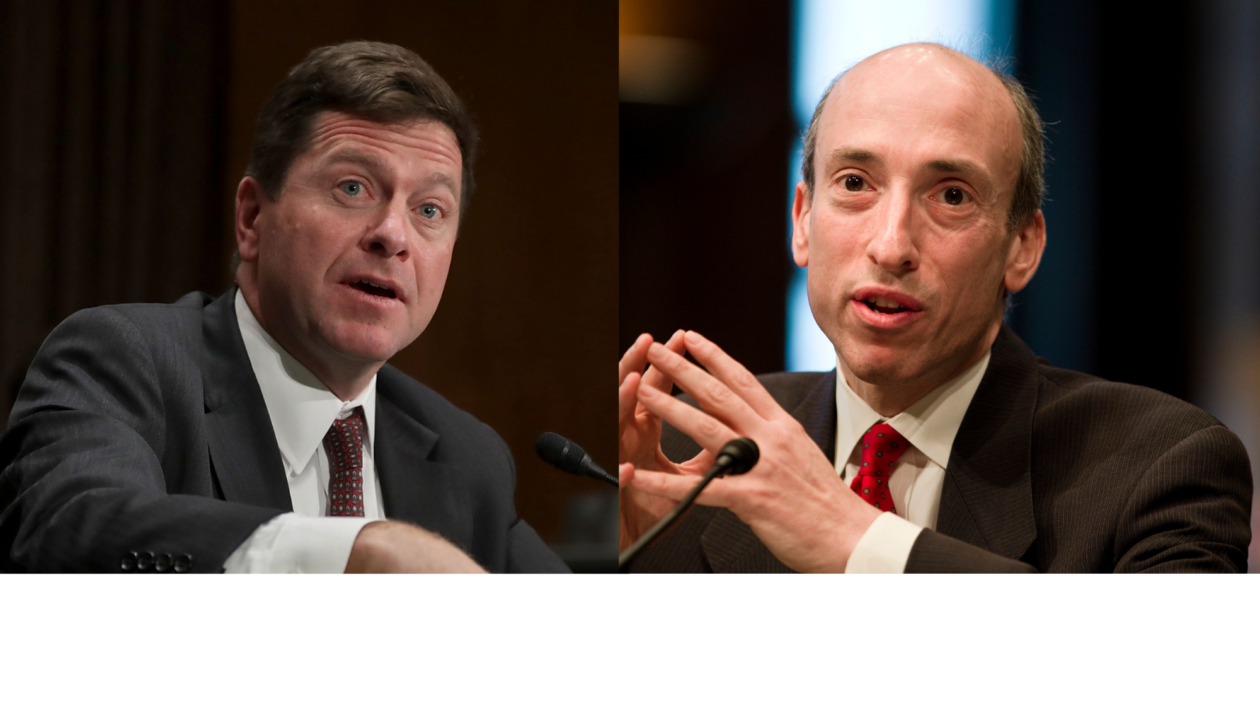A conversation between U.S. Securities and Exchange Commission Chair Gary Gensler with his immediate predecessor, former Chair Jay Clayton, featured many colorful analogies but not much new insight. The bottom line is the SEC wants any platforms that lend or trade to be regulated, for their own good, Gensler suggested. “New technologies do not long persist if they stay outside public policy framework,” he said, as he has said before.
Fast facts
- The conversation was a keynote discussion on the state of crypto regulation and market integrity that kicked off the 2021 Digital Asset Compliance and Market Integrity Summit. Gensler participated by videoconference while Clayton was before a live audience in Manhattan.
- Clayton asked Gensler to specify why in an August speech he equated cryptocurrencies to the “Wild West.” Gensler elaborated, “a lot of projects that have gone live have entrepreneurs raising money and turning to lawyers to ask, ‘How do we avoid the authorities?'” Then Gensler appealed directly to the lawyers and accountants who advise crypto companies. “I speak to the advisers, ‘Think about our laws and why they exist.’ Gatekeepers, bring your project to the SEC, find a path to register, and get under our regulation remit.” Gensler would repeat his exhortation to crypto companies to approach the SEC for discussion several more times during the hourlong conversation.
- Clayton raised the topic of surveillance of crypto activities and Gensler repeated another pet analogy as he explained that the SEC has to have transparency into investment vehicles because its mission is in part to protect the public. “We’re going to have a spill in aisle three and the public’s going to say where was the official sector.”
- Gensler also described stablecoins as “the poker chip at the casino.” He explained that they were developed to make trading platforms more efficient, but “allowed people around the globe to avert anti money laundering and tax compliance in jurisdiction after jurisdiction.” Once again he implored companies to speak to the SEC and “see how our rules apply,” specifically underscoring that U.S. dollar stablecoins “must be backed one-to-one” to the U.S. dollar.
- Clayton attempted to use a baseball analogy to answer Gensler’s question about why more crypto companies did not register with the SEC during Clayton’s tenure from 2017 to 2020. “Trading is very dispersed globally, that makes it much more of a challenge. And a lot of people thought they could throw a fastball at regulators.”
Gensler seemed to disagree with the analogy, however. “I don’t know if the history of baseball ties to the U.S. history of finance,” he said.

